In Yemen, WHO-supported frontliners deliver hope at the start of life
 26 October 2025, Aden, Yemen – In the heart of Aden, where conflict, fragility and a crumbling health system converge, 2 health care heroes – Ashwaq Saeed and Hind Hadi – are quietly rewriting the story of maternal and newborn survival. Each day, at Al-Sadaqa Teaching Hospital, they struggle against the odds to give every newborn the best possible start in life.
26 October 2025, Aden, Yemen – In the heart of Aden, where conflict, fragility and a crumbling health system converge, 2 health care heroes – Ashwaq Saeed and Hind Hadi – are quietly rewriting the story of maternal and newborn survival. Each day, at Al-Sadaqa Teaching Hospital, they struggle against the odds to give every newborn the best possible start in life.
Ashwaq Saeed, Supervisor of the Midwifery Department and Head of the Gynaecology and Obstetrics Ward, started at Al-Sadaqa as a volunteer. Her role soon evolved into a life-defining mission.
“Midwifery isn’t just about delivering babies,” says Ashwaq. “It’s about being present at the most vulnerable and beautiful moment in a family’s life.”
In a health system where only 50% of facilities are fully functional and maternal and neonatal mortality rates are alarmingly high, Ashwaq’s passion fills a critical gap. She and her team face a near constant scarcity of supplies, workforce shortages and low community awareness, yet she finds ingenious ways to adapt.
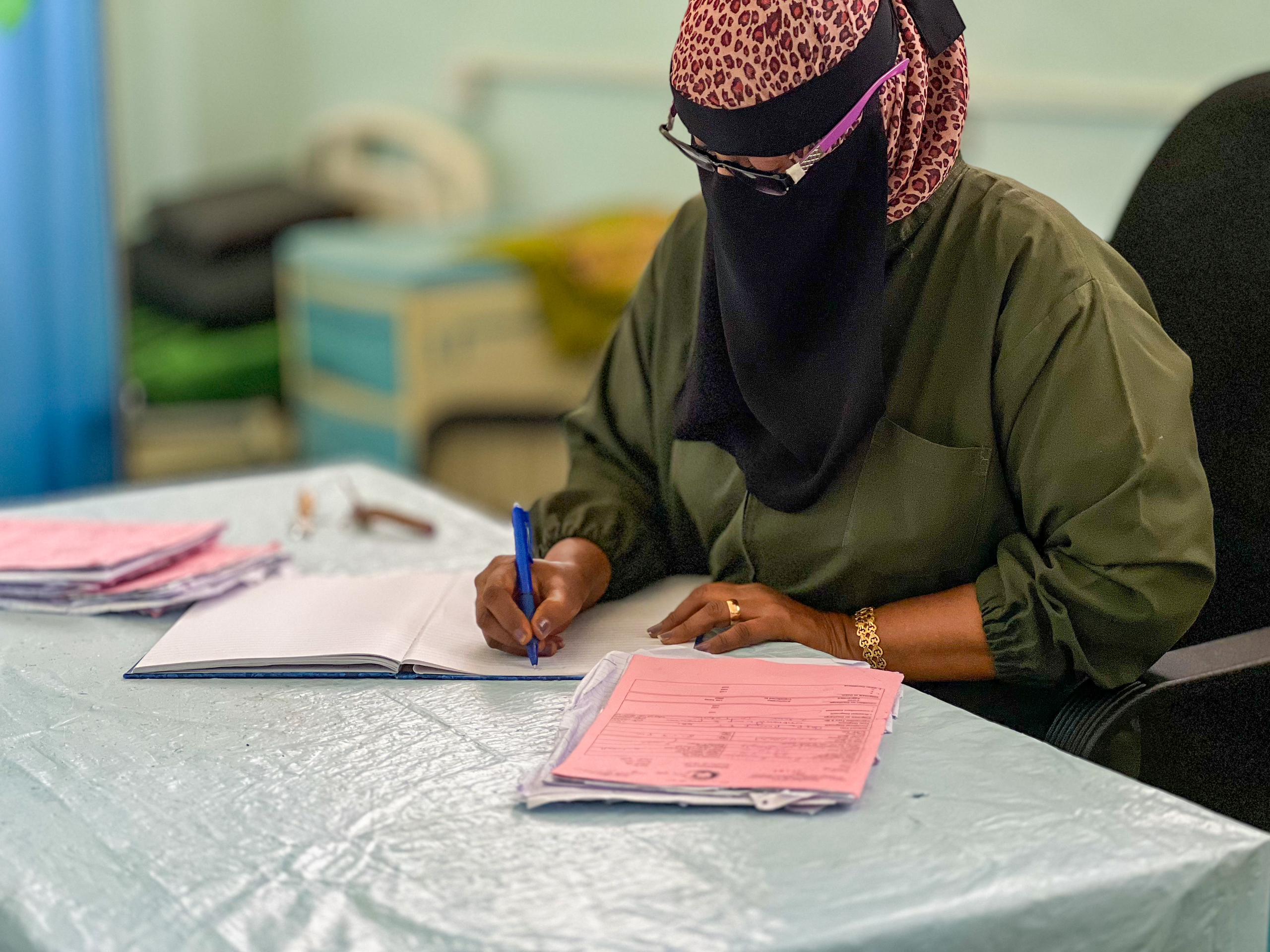 “We store surplus supplies for emergencies and we educate mothers whenever we can,” says Ashwaq. But to improve outcomes, she adds, more investment in training and equipment is urgently needed.
“We store surplus supplies for emergencies and we educate mothers whenever we can,” says Ashwaq. But to improve outcomes, she adds, more investment in training and equipment is urgently needed.
In the adjacent neonatal unit Hind Hadi, a nurse with over 12 years of experience, manages the care of premature and critically ill newborns. “We receive babies not just from the emergency department but from across other governorates,” she says. “Sometimes we simply don’t have enough beds.”
Her unit battles overcrowding daily, yet her commitment never wavers. “The joy in a mother’s eyes when her child recovers, it’s indescribable. That’s when I know our work truly matters,”
Ashwaq and Hind’s courage and commitment may fill some of the gaps, but without systemic change, training and resources, these health care workers are being stretched beyond their limits. Frontline dedication alone is not enough.
Recognizing these challenges, the World Health Organization (WHO) has taken a decisive role in strengthening Yemen’s maternal and newborn care through the introduction of Early Essential Newborn Care (EENC), a package of evidence-based lifesaving interventions during delivery and the early newborn period designed to prevent the most common causes of newborn mortality – hypothermia, asphyxia and infections – through low-cost, high-impact practices like immediate skin-to-skin contact, delayed cord clamping and early initiation of breastfeeding.
Under the leadership of the Ministry of Public Health and Population, WHO conducted Yemen’s first EENC coaching for facilitators in June 2022, beginning with Al-Sadaqa Hospital.
Baseline assessments prior to the EENC coaching revealed alarming shortcomings in current practice. Many newborns were being separated from their mothers immediately after birth. Skin-to-skin contact and thorough drying were rarely performed. Harmful routines such as early cord clamping and routine suctioning were widespread.
The WHO-supported coaching proved transformative. Staff knowledge scores for managing breathing babies jumped from 0% to 96%, and for non-breathing babies from 36% to 93%. A total of 28 facilitators and staff from 4 hospitals were trained, including Ashwaq and Hind. Both now serve as EENC champions within their departments.
Hind, who had been managing her unit’s overwhelming caseload with limited equipment, now has the technical tools to respond faster and more effectively to emergencies. Ashwaq, empowered by new techniques and protocols, is pushing for changes in hospital policies and advocating for increased recognition of midwives in her community.
The transformation is human as well as technical. EENC has reinvigorated cooperation between paediatricians, obstetricians and nurses. It has restored a sense of agency to health workers that had long been overshadowed by systemic failure.
Sustaining this progress requires more than one-off trainings. As WHO continues to scale up EENC in other hospitals, including Al Sha’ab, Al Razi and Ibn Khaldoun, consistent supplies of coaching materials and medical equipment, as well as policy backing, are vital. Support is also needed to address infrastructure challenges such as the absence of proper resuscitation spaces near delivery rooms, and to ensure mothers have clothing that allows skin-to-skin contact.
Today, it is frontline champions like Ashwaq and Hind who carry WHO’s vision forward. But they cannot do it alone.
Yemen’s health system is still under-resourced, leaving newborn lives at risk. Sustained donor support is urgently needed to expand lifesaving interventions like EENC across the country. By investing in these local heroes and the systems that support them we not only save lives – we restore dignity and hope to families across Yemen.
Every child deserves the chance to take their first breath in safe hands.
WHO and UAE launch joint programme to reduce malnutrition among Yemenis on Socotra Island
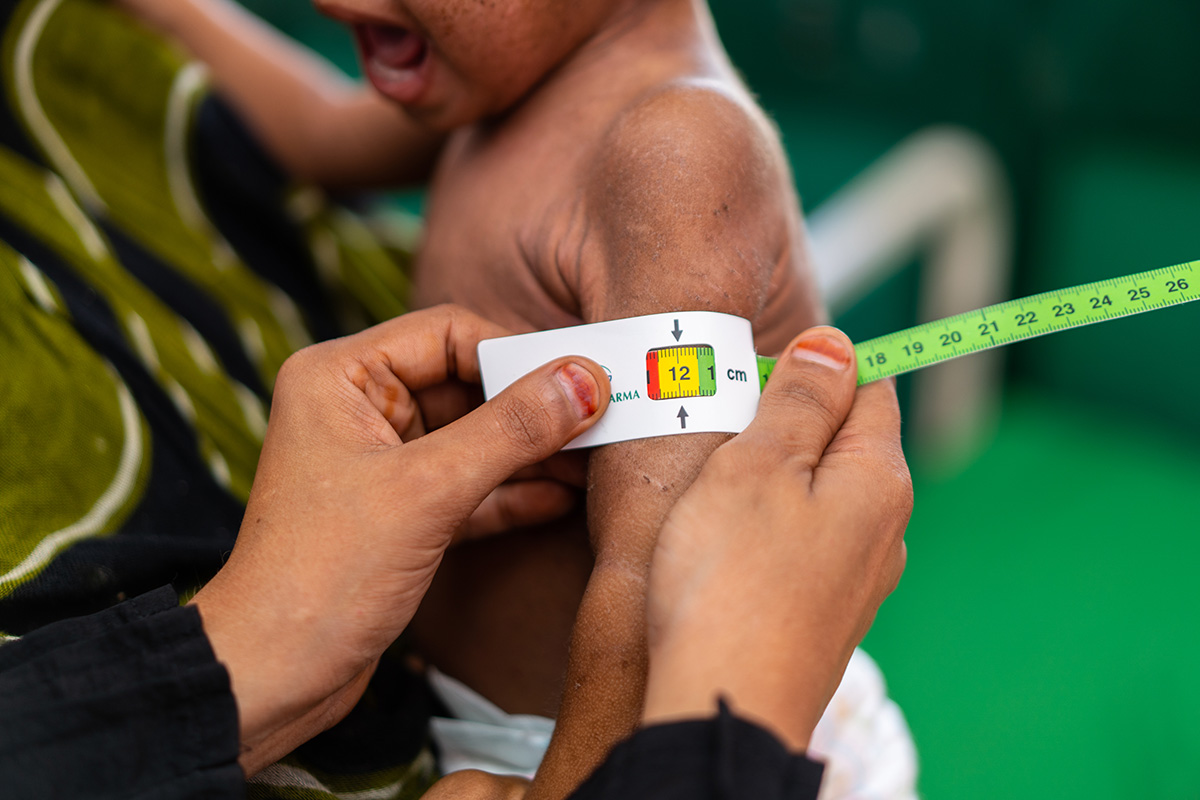 01 June 2025 – The World Health Organization (WHO), in partnership with the Government of the United Arab Emirates through the Khalifa bin Zayed Al Nahyan Foundation for Humanitarian Work (an affiliate of Erth Zayed Philanthropies), and in close coordination with Yemen’s Ministry of Public Health and Population (MoPHP), has launched a comprehensive programme to combat malnutrition in Socotra, a Yemeni island in the Indian Ocean.
01 June 2025 – The World Health Organization (WHO), in partnership with the Government of the United Arab Emirates through the Khalifa bin Zayed Al Nahyan Foundation for Humanitarian Work (an affiliate of Erth Zayed Philanthropies), and in close coordination with Yemen’s Ministry of Public Health and Population (MoPHP), has launched a comprehensive programme to combat malnutrition in Socotra, a Yemeni island in the Indian Ocean.
Socotra is facing malnutrition challenges driven by food insecurity, as well as repeated outbreaks of cholera, measles and dengue fever. Health and nutrition services are critically under-resourced, placing children under 5 and pregnant and lactating women at extreme risk of preventable illness and death.
The island’s more than 83 000 residents are served by 32 health facilities which are under immense strain. It lacks a central public health laboratory, a functional drug warehouse and a medical prepositioning system, all of which are essential for timely emergency response and sustainable health care delivery.
The fragile health system suffers from a lack of skilled health personnel, essential medicines and emergency readiness mechanisms. Maternal health indicators are alarming, with 92.7% of pregnant women anemic and antenatal care attendance low. Around 37% of children have yet to receive a single vaccine dose. The global acute malnutrition (GAM) rate stands at 10.9% and the severe acute malnutrition (SAM) rate at 1.6%, indicating a serious public health emergency.
“This programme reflects a joint commitment by WHO and the UAE to improving the health and well-being of vulnerable populations, particularly mothers and children, while reinforcing healthcare systems in crisis-affected areas. In partnership with national authorities, we are working to create more resilient, equitable, and responsive health services for the people of Socotra, establishing a foundation for long-term health security on the island and contributing to a stronger and healthier Yemen,” said Acting WHO Representative in Yemen Dr Ferima Coulibaly-Zerbo.
The initiative began with a baseline health and nutrition survey conducted between 24 and 30 May 2025. Over the next two, years the project aims to reduce mortality related to poor health and malnutrition by 20% through an integrated health system strengthening approach. The project aims to:
enhance maternal and child health service coverage in 80% of health facilities within the next 24 months;
strengthen outbreak preparedness and disaster risk reduction by equipping health care facilities and build staff capacity so they can respond effectively to epidemic-prone diseases and cyclone-related emergencies;
establish a multisectoral health and nutrition coordination platform that enables quarterly strategic planning meetings between WHO, UAE, MoPHP and partners;
generate real-time evidence-based data through the baseline health and nutrition survey conducted between 24 and 30 May 2025; and
strengthen routine health information reporting/ system to track progress on service utilization, morbidity and mortality.
“H.E. Mohamed Haji Al Khouri, Director General of the Khalifa Bin Zayed Al Nahyan Foundation for Humanitarian Work, stressed the UAE’s humanitarian and global responsibility to develop communities and enhance critical health services. “This stems from the enduring humanitarian legacy of the late Sheikh Zayed bin Sultan Al Nahyan and the leadership of His Highness Sheikh Mohamed bin Zayed Al Nahyan, President of the UAE. We are determined to effectively address food and health challenges faced by women and children in Socotra, in collaboration with the WHO,” he said.
Al Khouri explained that the Khalifa Foundation, an affiliate of Erth Zayed Philanthropies, would work with the WHO to develop appropriate solutions to nutritional and health challenges using a new survey based on current data. “The joint initiative aims to reduce maternal and child mortality caused by malnutrition through a comprehensive plan of action. This will enhance maternal, infant, and child care services, and improve emergency preparedness and response to epidemics,” he added.“
For media inquiries, please contact:
WHO Yemen Communications Team
Email:
About WHO
Since 1948, the World Health Organization (WHO) has been the United Nations agency dedicated to advancing health for all, so that everyone, everywhere can attain the highest level of health. WHO leads global efforts to expand universal health coverage, direct and coordinate the world’s responses to health emergencies and connect nations, partners and people to promote health, keep the world safe and serve the vulnerable.
World Health Organization appeals for urgent health funding to protect millions of lives in Yemen in 2026
12 February 2026, Aden, Yemen – The World Health Organization (WHO) is appealing for US$ 38.8 million to deliver life-saving emergency health assistance to 10.5 million people across Yemen in 2026, as the country enters another year of protracted conflict, disease outbreaks, climate shocks and deepening humanitarian needs.
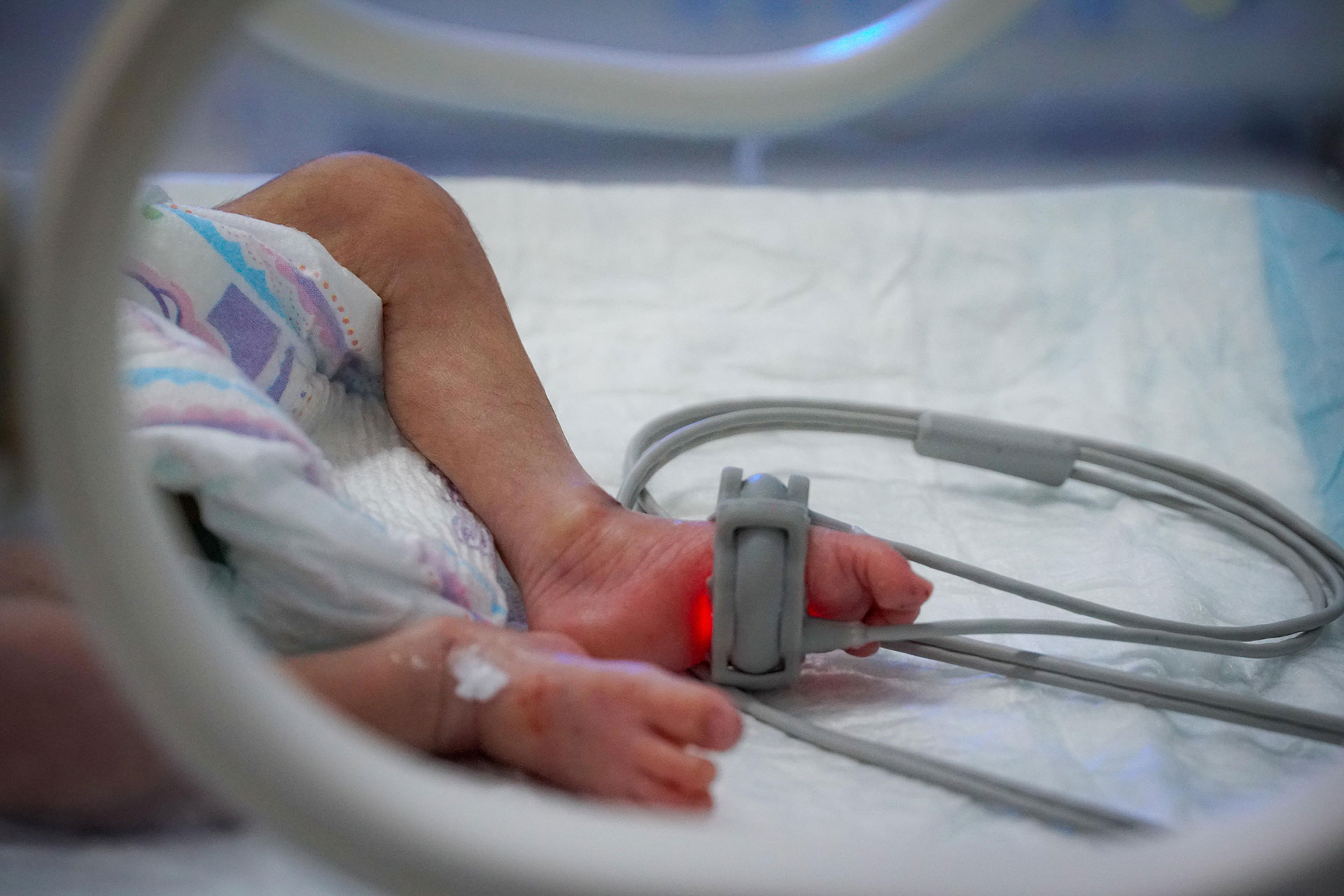 An infant inside an incubator. Photo credit: WHO Yemen/Nesma Khan
An infant inside an incubator. Photo credit: WHO Yemen/Nesma Khan
After more than a decade of crisis, Yemen continues to face one of the world’s most complex health emergencies. An estimated 23.1 million people require humanitarian assistance, while only around 60% of health facilities remain fully functional, leaving millions without reliable access to essential care.
“Yemen’s health system is stretched to its limits,” said Dr Syed Jaffar Hussain, WHO Representative and Head of Mission in Yemen. “Without sustained and timely funding, preventable diseases will spread unchecked, health facilities will be forced to scale down services, and the most vulnerable communities will pay the highest price.”
Yemen continues to experience multiple, concurrent disease outbreaks, including cholera, measles, dengue fever and polio, driven by low immunization coverage, unsafe water and sanitation, population displacement and limited access to care. Climate-related shocks, including floods and extreme weather, are intensifying transmission risks and damaging already fragile health infrastructure.
At the same time, acute malnutrition remains a major public health threat. Millions of children are affected, with hundreds of thousands facing severe acute malnutrition requiring urgent medical treatment. Without access to timely health and nutrition services, children remain highly vulnerable to preventable and life-threatening infections.
In 2026, under the Humanitarian Reset, WHO’s response in Yemen will prioritize life-saving and time-critical interventions in areas with the highest needs. Through its leadership of the Health Cluster, WHO will continue to strengthen disease surveillance and rapid response, ensure access to essential medicines and supplies, deploy mobile and surgical teams, support immunization campaigns, and build national capacity to sustain essential health services.
“Every delay in funding translates into lost opportunities to save lives,” Dr Hussain added. “This appeal is not only about responding to emergencies – it is about preserving the foundations of Yemen’s health system and preventing further human suffering.”
WHO calls on international partners and donors to urgently scale up support to ensure that critical health services remain available to communities across Yemen throughout 2026.
Related links
WHO Health Emergency Appeal for Yemen 2026
Media contacts
WHO Yemen Communications
Email:
About WHO
Founded in 1948, the World Health Organization (WHO) is the United Nations agency dedicated to promoting health, keeping the world safe and serving the vulnerable. WHO leads global efforts to expand universal health coverage, coordinate responses to health emergencies and advance well-being for all.
When every minute counts: Emergency trauma care saving lives in Marib and Taiz
11 February 2026, Aden, Yemen – In Yemen, emergencies arrive without warning – and often in numbers that overwhelm fragile health systems.
Across Marib and Taiz, hospitals are receiving a steady flow of patients injured by road traffic crashes, explosions and gunfire. Many arrive in critical condition. For them, survival depends on minutes: on whether trained teams are available, operating theatres are functional and essential supplies are within reach.
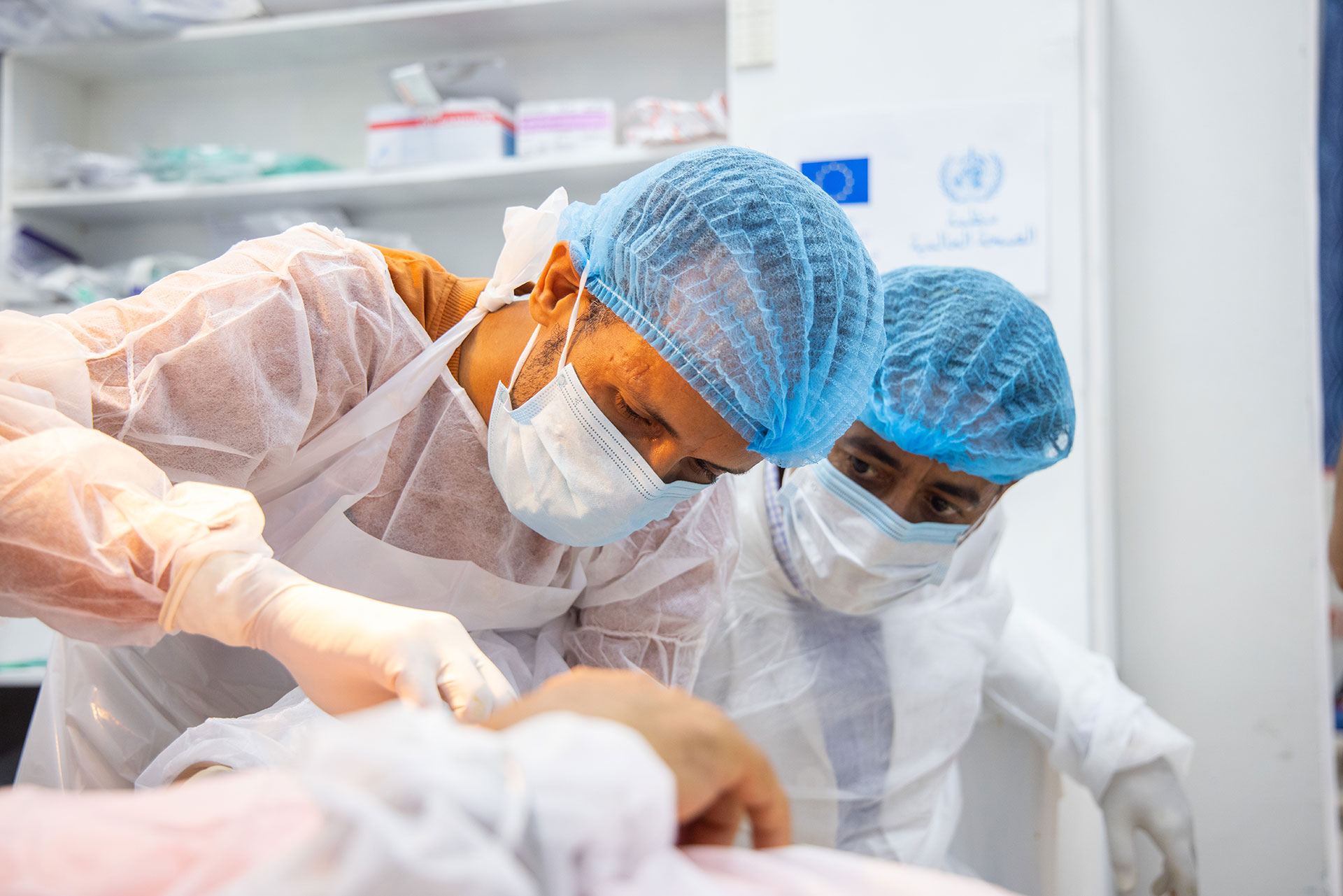 The medical team at Al-Thawarah Hospital performs a surgical operation, providing critical and lifesaving care to patients. Photo credit: WHO
The medical team at Al-Thawarah Hospital performs a surgical operation, providing critical and lifesaving care to patients. Photo credit: WHO
At Marib General Hospital, one of the country’s busiest referral facilities, trauma cases frequently arrive in waves. Dr Abdulrab Al-Salihi, a general surgery consultant who has worked at the hospital since its establishment, describes the pressure facing frontline teams: “Sometimes we receive 5 to 15 critical cases at the same time – from traffic accidents, explosions, or shootings. We must triage immediately and act fast to save lives.”
Marib now hosts one of the largest populations of internally displaced people in Yemen, placing extraordinary strain on already stretched health services. Despite these challenges, emergency surgeries continue around the clock – saving women, young adults and families arriving with little more than hope.
According to Abdulkareem Ali Hussein Hamid, Acting Chairman of the Marib Hospital Authority, recent support has made a tangible difference in how emergencies are managed. He explains that the presence of supported surgical teams has reduced waiting times and improved staff efficiency in handling complex and critical cases, strengthening the hospital’s overall emergency response capacity.
These gains are being sustained through strengthened emergency systems supported by the World Health Organization (WHO), with funding from the European Civil Protection and Humanitarian Aid Operations (ECHO), helping ensure that operating theatres remain functional and life-saving care continues when it is needed most.
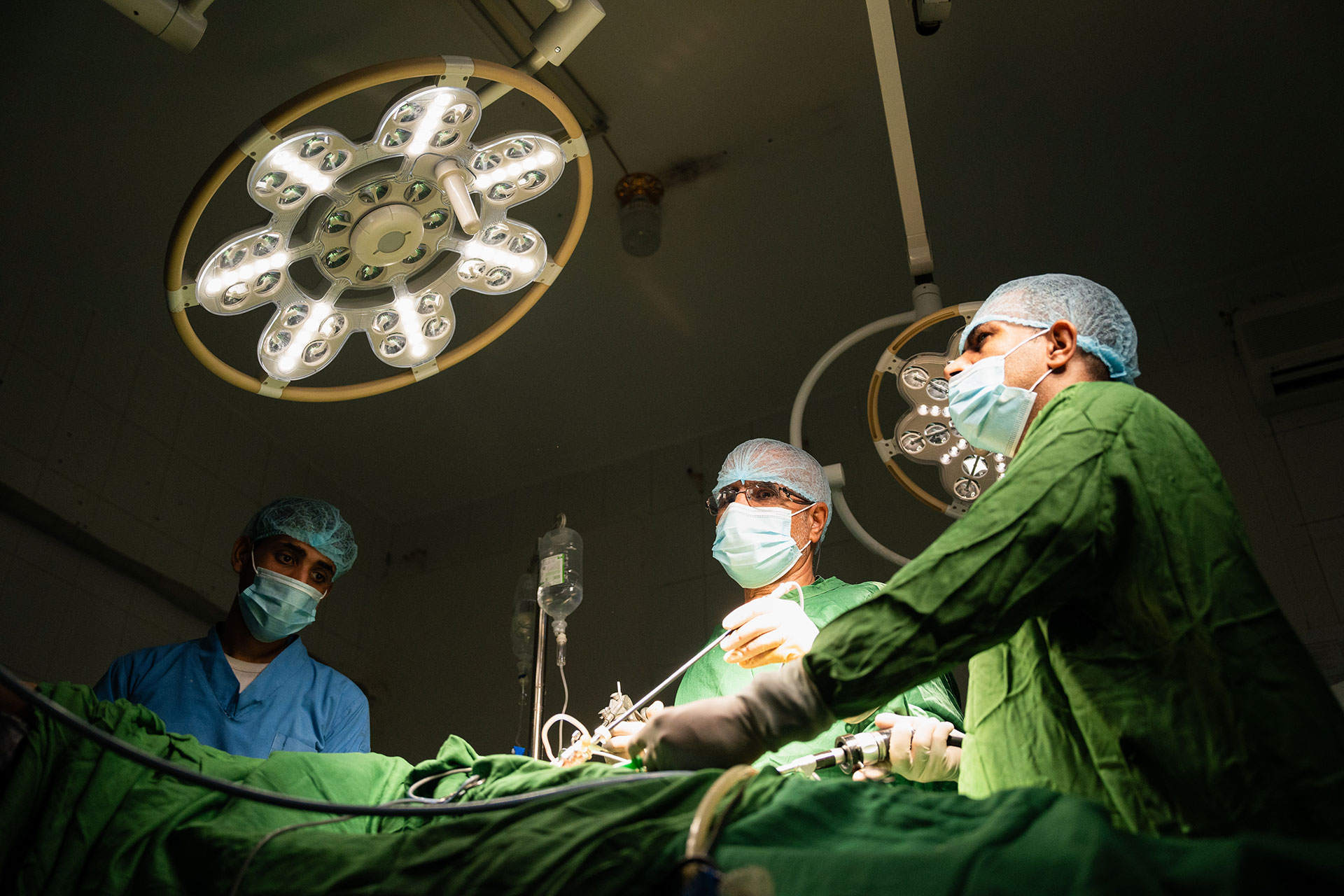 Doctors perform an endoscopy procedure on a patient, carefully examining the internal organs. They work together to ensure the procedure is safe, while monitoring the patient’s condition throughout. Photo credit: WHO
Doctors perform an endoscopy procedure on a patient, carefully examining the internal organs. They work together to ensure the procedure is safe, while monitoring the patient’s condition throughout. Photo credit: WHO
Between October and December 2025, this support translated into tangible, life-saving impact across three referral hospitals—Al Thawrah and Al Gamhouri hospitals in Taiz, and Marib General Hospital. More than 700 surgical procedures were performed, restoring mobility and saving lives, while 3,572 patients received critical consultations, triaging, and timely care. For frontline staff, however, impact is not measured in numbers alone, but in lives touched. Salma Abdulilah Abdullah Shard, a pharmacist at Marib General Hospital, recalls a moment that continues to define her work: “A child was brought to the emergency room with no heartbeat. The team continued resuscitation for more than 40 minutes. When the heartbeat returned, it felt as if life itself had been restored.”
Hundreds of kilometres away, the same urgency defines care at Al-Thawra General Hospital in Taiz. Once severely damaged by years of conflict – some facilities losing up to 80–90% of their capacity – the hospital is gradually restoring emergency and surgical services and now serves patients from four neighbouring governorates.
For patients, the impact of improved emergency care is immediate and deeply personal. Ibrahim Ali Ghaleb, who was rushed to Al-Thawra Hospital after a serious road accident, recalls the speed and coordination of the response: “All the doctors came immediately and worked as one team. I was treated, taken to surgery and cared for without neglect. This hospital saves lives and needs continued support.”
Across both Marib and Taiz, emergency trauma care remains fragile – but operational. Surgeons work through the night, pharmacists manage scarce supplies and generators keep operating theatres running during power cuts.
With ECHO’s support, these hospitals are not only responding to emergencies – they are restoring trust, dignity and the chance of survival for people injured by conflict and displacement.
In a country where every minute can decide a life, this support is not optional.
It is lifesaving.








